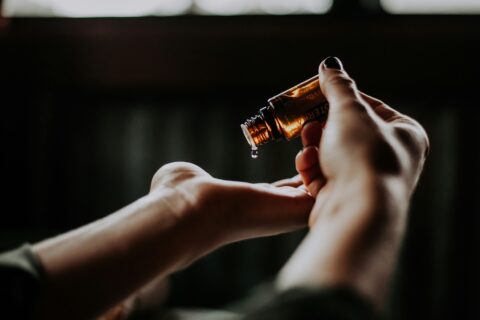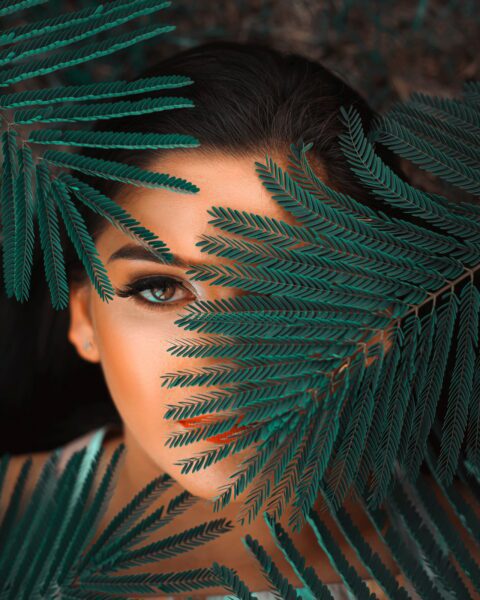Introduction to the concept of beauty throughout history
Step back in time and journey through the annals of history as we uncover beauty rituals that have stood the test of time. From the opulent courts of ancient Egypt to the vibrant streets of ancient Greece, each civilization has left behind a legacy of treasured beauty secrets. These age-old practices not only reveal their timeless allure but also offer us valuable insights into the evolution of beauty throughout the ages.
Prepare to be captivated as we unravel these fascinating tales from antiquity, where natural ingredients, elaborate skincare rituals, and holistic approaches were revered for enhancing one’s physical radiance. Join us on this enchanting voyage as we delve into the realms of ancient civilizations and unearth their cherished beauty traditions. Let’s discover how our ancestors paved the way for today’s modern-day beauty regimes! So sit back, relax, and let your imagination whisk you away to distant lands filled with untold stories of timeless beauty. Are you ready? Let’s begin!
Ancient Egyptian Beauty Secrets
The ancient Egyptians were renowned for their beauty rituals, which involved the use of natural ingredients to enhance their skin and hair. Honey, milk, and oils were some of the key elements in their beauty arsenal.
Skincare was a top priority for the Egyptians. They believed that a clear complexion was a sign of beauty and used honey as a natural moisturizer and anti-aging treatment. Milk baths were also popular, as they helped to nourish and soften the skin.
Haircare was equally important in ancient Egypt. They would regularly apply oils like castor oil or almond oil to keep their locks healthy and shiny. These oils not only provided moisture but also protected the hair from environmental damage.
In addition to using natural ingredients, the Egyptians had elaborate skincare routines. They would exfoliate with scrubs made from salt or sand, followed by applying various creams and ointments to maintain youthful-looking skin.
Ancient Egyptian beauty secrets revolved around nurturing both the skin and hair naturally. Their focus on skincare rituals using honey, milk, oils showcased their belief in maintaining beautiful appearances through time-tested practices!
A. Use of natural ingredients like honey, milk, and oils
Ancient Egyptians were well-known for their beauty rituals, and one of their secrets was the use of natural ingredients. They believed in harnessing the power of nature to enhance their physical appearance. Honey, milk, and oils were some of the key ingredients they incorporated into their beauty regimen.
Honey was treasured for its moisturizing properties. It was used as a natural humectant, helping to retain moisture in the skin and prevent dryness. Milk, on the other hand, was valued for its nourishing qualities. Cleopatra herself famously bathed in donkey milk to maintain her radiant complexion.
Oils played a significant role in ancient Egyptian beauty rituals too. Essential oils such as rosemary oil or lavender oil were used to massage the skin and promote blood circulation. These massages not only rejuvenated the skin but also helped relax muscles and relieve stress.
By utilizing these natural ingredients, ancient Egyptians recognized that taking care of their skin meant using gentle yet effective remedies from Mother Nature herself! So why not take a page out of their book and incorporate these time-tested beauty secrets into your own routine?
B. Focus on skincare and haircare rituals
The ancient Egyptians were true pioneers when it came to skincare and haircare rituals. They understood the importance of taking care of their skin and hair, using natural ingredients that are still popular today.
One of their beauty secrets was the use of honey. This sweet ingredient was not only used as a delicious treat but also as a moisturizer for the skin. Honey is known for its hydrating properties, helping to keep the skin soft and supple.
Milk was another staple in ancient Egyptian beauty routines. Cleopatra herself was said to have bathed in milk to maintain her youthful appearance. Milk contains lactic acid, which gently exfoliates the skin and helps promote cell turnover, leaving you with smoother and brighter-looking skin.
Oils were also highly valued by the ancient Egyptians. They would apply various oils like almond oil or jojoba oil to their bodies as a way to nourish their skin and keep it hydrated. These oils are rich in vitamins and antioxidants, providing essential nutrients for healthy-looking skin.
When it came to haircare, the ancient Egyptians had some tricks up their sleeves too. They believed that having long, lustrous locks symbolized beauty and vitality. To achieve this, they would often apply castor oil or olive oil onto their scalps and massage it in to stimulate hair growth.
In addition to these natural remedies, proper cleansing rituals were also important in maintaining healthy-looking skin and hair. The ancient Egyptians would regularly cleanse their faces with water mixed with natron (a naturally occurring salt), followed by an application of soothing lotions made from plants like aloe vera or rosewater.
These time-tested skincare and haircare rituals from ancient Egypt may seem simple compared to modern-day beauty practices but they prove that nature has always held incredible beauty secrets waiting for us to discover! So next time you’re looking for ways to enhance your own routine, why not take inspiration from our ancestors who knew the power of natural ingredients?
Greek Beauty Traditions
When it comes to beauty, the ancient Greeks had a holistic approach that centered around physical fitness and a healthy diet. They believed that true beauty radiated from within, and taking care of the body was crucial for achieving outer beauty.
Physical fitness played a significant role in Greek beauty traditions. The Greeks were known for their love of sports and exercise, with activities like running, wrestling, and gymnastics being highly valued. They believed that regular physical activity not only improved overall health but also enhanced one’s appearance by sculpting the body and promoting youthful vitality.
In addition to exercise, the Greeks placed great importance on maintaining a healthy diet. Fresh fruits, vegetables, whole grains, and lean proteins were staples of their meals. They understood that what you put into your body directly affects your outward appearance – nourishing it from within for a radiant glow.
For skincare and haircare rituals, olive oil took center stage in Greek beauty traditions. This versatile ingredient was used as both a moisturizer for the skin and conditioner for the hair. Its natural properties provided hydration while protecting against environmental damage – leaving behind soft skin and lustrous locks.
The Greeks truly understood that true beauty stems from self-care practices that prioritize overall well-being. By embracing physical fitness routines as well as nourishing their bodies with wholesome foods and natural ingredients like olive oil, they cultivated timeless standards of gracefulness and radiance.
Stay tuned to discover more time-tested beauty secrets from ancient civilizations!
A. Emphasis on physical fitness and healthy diet
The ancient Greeks were known for their emphasis on physical fitness and maintaining a healthy diet. They believed that true beauty came from within, and this meant taking care of both the body and mind.
Greek society placed great importance on physical strength and agility, as they believed it was essential for achieving a harmonious balance in life. Physical education was an integral part of their culture, with activities such as wrestling, running, and discus throwing being highly valued.
In addition to regular exercise, the Greeks also understood the significance of nourishing their bodies with wholesome foods. Their diet consisted mainly of fresh fruits, vegetables, whole grains, legumes, fish, and olive oil. These natural ingredients provided them with essential nutrients to maintain optimal health.
Olive oil played a significant role in Greek beauty rituals as well. It was not only used as a moisturizer for the skin but also as a conditioner for hair. Its hydrating properties helped keep the skin supple and smooth while adding shine to lustrous locks.
By prioritizing physical fitness and adopting a nutritious diet rich in natural ingredients like olive oil, the ancient Greeks recognized that true beauty emanates from taking care of oneself holistically – inside out!
B. Use of olive oil for skin and hair
Greek Beauty Traditions: Use of Olive Oil for Skin and Hair
When it comes to ancient beauty secrets, the Greeks definitely knew a thing or two. One of their time-tested rituals involved the use of olive oil for both skin and hair care.
Olive oil was highly valued in Greek society not only as a dietary staple but also as a beauty elixir. The Greeks believed that olive oil had numerous benefits for the skin and hair, making it an essential part of their beauty routine.
For skincare, they would apply olive oil directly onto their skin, using it as a moisturizer. Its rich texture would deeply hydrate and nourish the skin, leaving it soft and supple. Some even mixed olive oil with other natural ingredients like honey or egg white to create masks that could rejuvenate and brighten their complexion.
As for haircare, the Greeks believed that massaging olive oil into the scalp promoted healthy hair growth while keeping it shiny and lustrous. They would often combine olive oil with herbs like rosemary or lavender to enhance its fragrance and therapeutic properties.
The use of olive oil in Greek beauty traditions is still prevalent today, with many people incorporating this ancient secret into their modern routines. So why not take a page from history’s book? Give your skin some love by trying out this timeless ingredient!
Roman Beauty Practices
The ancient Romans were known for their extravagant lifestyles and attention to beauty. Influenced by Greek beauty ideals, the Romans placed great importance on physical appearance. They believed that a well-groomed individual was a sign of status and sophistication.
One of the most interesting aspects of Roman beauty practices was their use of cosmetics. However, unlike the natural ingredients used by other civilizations, the Romans took it to another level with lead-based cosmetics. These cosmetics were used to create a pale complexion and enhance facial features.
In addition to their cosmetic routines, the Romans also focused on maintaining healthy skin and hair. They would indulge in luxurious spa treatments such as steam baths and massages using fragrant oils like lavender or rosemary.
Another key aspect of Roman beauty rituals was their dedication to personal hygiene. They would visit public bathhouses regularly for cleansing rituals which included exfoliating scrubs made from olive oil and fine sand.
Roman beauty practices were characterized by an emphasis on enhancing physical appearance through elaborate skincare routines, lead-based cosmetics, and indulgent spa treatments.
A. Influence of Greek beauty ideals
Greek Beauty Ideals: Timeless Inspiration for Radiant Skin and Hair
The ancient Greeks were known for their admiration of physical beauty, and this extended to their beauty ideals as well. The Greek culture emphasized the pursuit of perfection in all areas of life, including skincare and haircare. Their beauty rituals focused on enhancing natural features and achieving a healthy glow.
One key aspect of Greek beauty ideals was the importance placed on physical fitness. Exercise was seen as essential not only for overall health but also for maintaining youthful-looking skin. The Greeks believed that a strong, toned body reflected inner vitality and radiance. They engaged in various activities such as running, wrestling, and dancing to stay fit.
In addition to exercise, the Greeks recognized the significance of a nutritious diet in attaining radiant skin and hair. They consumed foods rich in vitamins, minerals, and antioxidants to nourish their bodies from within. Fruits like figs and grapes were particularly valued for their hydrating properties.
When it came to skincare, olive oil was a staple ingredient used by both men and women in ancient Greece. Its moisturizing properties made it an excellent choice for keeping the skin soft and supple. Olive oil was often applied after bathing or used as a base for perfumes.
For haircare, Greeks believed that beautiful tresses symbolized vitality and youthfulness. They used herbal infusions like rosemary or chamomile to cleanse their scalps while promoting healthy hair growth. Olive oil once again played a significant role; it was massaged into the scalp to condition both the hair strands themselves.
The influence of Greek beauty ideals can still be felt today through practices that prioritize holistic well-being rather than relying solely on external treatments or products.
Their emphasis on physical fitness reminds us that taking care of our bodies plays an integral part in achieving glowing skin.
Incorporating nutrient-rich foods into our diets can provide long-lasting benefits beyond what topical skincare products can offer.
And the use of natural ingredients like olive oil showcases the timeless effectiveness
B. Use of lead-based cosmetics
The ancient Romans were known for their elaborate beauty rituals, and one practice that stood out was their use of lead-based cosmetics. Yes, you read that right – lead! It may sound shocking to us today, but back then it was considered the height of fashion.
Lead-based cosmetics were primarily used as a foundation or face powder. The Romans believed that these products would give them a flawless complexion and help cover up any imperfections. However, what they didn’t realize was the dangerous effects that lead can have on the body.
Lead is a highly toxic substance and prolonged exposure to it can lead to serious health issues such as kidney damage, neurological problems, and even death in extreme cases. Unfortunately, the Romans were unaware of these risks and continued to use these cosmetics without knowing the potential harm they were causing themselves.
It’s important to remember that beauty should never come at the cost of our health. While we can admire the ingenuity of ancient civilizations’ beauty rituals, we should also be grateful for modern advancements in skincare and makeup that prioritize safety above all else.
So next time you reach for your favorite cosmetic product, take a moment to appreciate how far we’ve come in understanding what’s safe and healthy for our bodies. And remember: true beauty comes from within – no toxic substances required!
Japanese
Japanese Beauty Traditions
The ancient Japanese civilization is renowned for its focus on simplicity and harmony, and this philosophy extends to their beauty rituals as well. Japanese women have long practiced skincare and haircare rituals that prioritize natural ingredients and a holistic approach to beauty.
One key aspect of Japanese beauty traditions is the use of rice water for skincare. Rice water, which is the starchy liquid left over after boiling or rinsing rice, is rich in vitamins, minerals, and antioxidants that nourish the skin. It has been used for centuries by Japanese women to cleanse their faces, leaving their skin soft and glowing.
Another iconic practice in Japanese beauty culture is the art of Geisha makeup. Geishas are traditional entertainers who undergo an elaborate makeup process that involves applying layers of white lead-based foundation known as “oshiroi.” While the use of lead-based cosmetics may not be recommended today due to its potential health risks, it’s important to acknowledge its historical significance in shaping Japan’s unique beauty aesthetic.
Additionally, a crucial element of Japanese beauty rituals is maintaining healthy hair using camellia oil. This lightweight oil extracted from camellia seeds has been treasured by generations of Japanese women for its moisturizing properties. It helps promote shine while taming frizz and protecting against damage caused by heat styling tools.
In conclusion,
Exploring ancient civilizations allows us to uncover timeless beauty secrets passed down through generations. From Ancient Egypt’s emphasis on natural ingredients like honey and oils to Greece’s focus on physical fitness and olive oil usage, each civilization offers unique insights into achieving radiant skin and lustrous hair.
By incorporating these time-tested practices into our modern routines, we can tap into the wisdom of our ancestors while embracing a more holistic approach to self-care. Let us celebrate diversity in cultural traditions while discovering new ways to enhance our own natural beauty – because true radiance transcends time!







